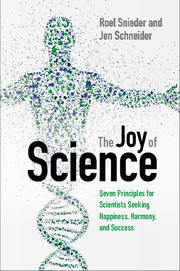5 - Listening
Published online by Cambridge University Press: 05 June 2016
Summary
I hope that everybody has some activity that gives their body so much joy that it can tell the mind to shut up. And then the mind finds itself on vacation, without the perceived need to output a lot of silly chatter. And lo and behold, when the output spigot is turned off, uncensored input flows in.
John Turk, The Raven's Gift (2009)We talk a lot. And when we're not talking, there is still a lot of “noise” around us – whether in the form of television, texts, or social media posts. In fact, we live in a society where talking and noise are such a big part of everyday life that many of us find silence difficult to bear, especially when we are in the company of others. Our tendency is usually to fill silence with conversation, to override our discomfort with silence by filling the void. Contrary to our normal communication habits, when we are silent, present, and consciously tuning in to the words of others, we communicate that “I am listening.” This willingness and ability to listen is usually much appreciated and it gives others permission to open up.
Listening is an art, and this art is the topic of this chapter. The word “listening” is used here in a broader sense than just taking in auditory input. We use this phrase for tuning in to information, spoken and unspoken, from both ourselves and others. We also define listening in an active, rather than passive, sense. It is a conscious choice to engage in communication with others and ourselves in a slower and more deliberate way than we might normally be used to.
WHAT DO YOU LISTEN TO?
In these times, we often get to choose what kinds of information come our way – we have control over which people we talk to, the material that we read, and which television shows or movies we watch. We may not be able to control the content in those sources of information, or we may disagree with the values that are communicated in them, but we have some choice over which of these physical channels of information enters our day-to-day existence. We might feel, even, that we are pretty discerning about which voices or opinions we allow to influence us.
- Type
- Chapter
- Information
- The Joy of ScienceSeven Principles for Scientists Seeking Happiness, Harmony, and Success, pp. 107 - 130Publisher: Cambridge University PressPrint publication year: 2016



